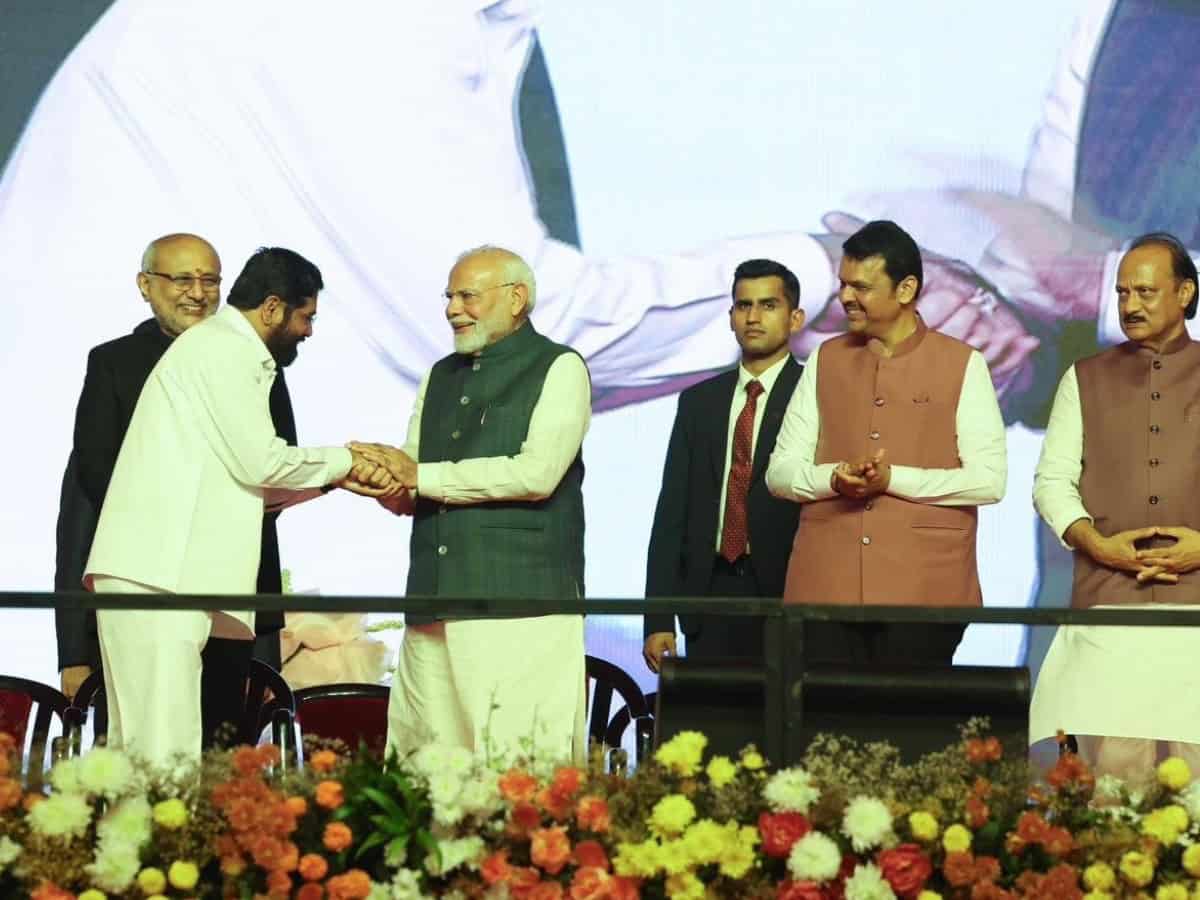
Now that a government with a monstrous majority is formed in Maharashtra after much grasping and gasping, it is time for it to settle down to the business of governance rather than remain tied-up in politics and step back from the brinkmanship which delayed the swearing-in by a dozen days.
The Bharatiya Janata Party should not play political games. Even if one of the two other parties – Shiv Sena led by Eknath Shinde or The Nationalist Congress Party led by Ajit Pawar – quit the alliance the remaining two together make for a substantive majority. The focus ought to be on getting things done for the people.
The past five years have been terrible for Maharashtra, first the Uddhav Thackeray breaking up with a pre-poll ally, BJP, then the COVID-19, and thereafter the breaking up of two parties which made for political instability. This alliance cannot afford not to run the state in a manner that befits Maharashtra, known for its progressive culture.
Don’t brush aside burning issues
The discourse that marked the elections, like agricultural distress, price rise, and joblessness, may have won Mahayuti its victory, but these are not issues that can, or should, be brushed under the carpet. That it won the mandate despite the opposition flogging those issues does not mean they count for less. These issues need attention.
Once the sharing of portfolios is a done deal, the Mahayuti ought to work towards benefiting the people in a manner that offers public goods to better their lives, not just dole out funds by direct transfer like in the Ladli Behna Yojana did. By launching the direct transfer to women, the state eliminated the rent-seeking intermediaries but has tied itself in knots.
The state’s finances, with a debt of Rs. 7.2 lakh crore is a serious handicap. There is a need for the state not to shrink its role because of direct transfer, but to find ways to build assets to ensure affordable healthcare and education. The private healthcare system is fattening itself using the route of the government-sponsored insurance cover but no substantial money is flowing into the public sector.
Provide good education
Private schools and private universities have sprung everywhere, making education expensive and out of reach for a majority and the public universities are sinking into pathetic levels where less is delivered. For decades the government has been avoiding permissions to the aided colleges to appoint permanent teachers. Both healthcare and education are keys to improving the human development index.
This is a precarious situation. The fact that women folk were happy at the Rs 1,500 per month which as per promise will go up to Rs 2,100 per month is one thing but it takes the state nowhere in creating permanent assets. The voters had asked for industrial estates in the belief that the private sector would bring more jobs. This sector employs fewer hands and seeks higher efficiencies.
Course correction required
The youth are trying to survive which is so antithetical to the idea of using the demographic dividend. They are forced to take any job they get, relocating to towns and cities but find that there is stagnation in employment. They get much less than what is required to live on and there are fewer jobs to secure.
A course correction is of immediate concern, for the state cannot run by setting up a system of doles while its own investment should give a bigger bang for the buck. However, having positioned itself on the knife’s edge by the dole for women, it would be hard for the government to find funds for building public goods. Benefits would flow only after a lag, and people are impatient.
It is time for full disclosures on the state’s finances and explaining how the state would continue to deliver both the direct transfer of funds and also develop Maharashtra on its resources rendered meagre by doles. It is a dilemma for a state that claims to be highly industrialized; but throw a brick and it would hit a jobless youngster. It is a big onion, soybean, and sugarcane grower but farmer families see their members leaving for the urban areas in unrealizable hope.

